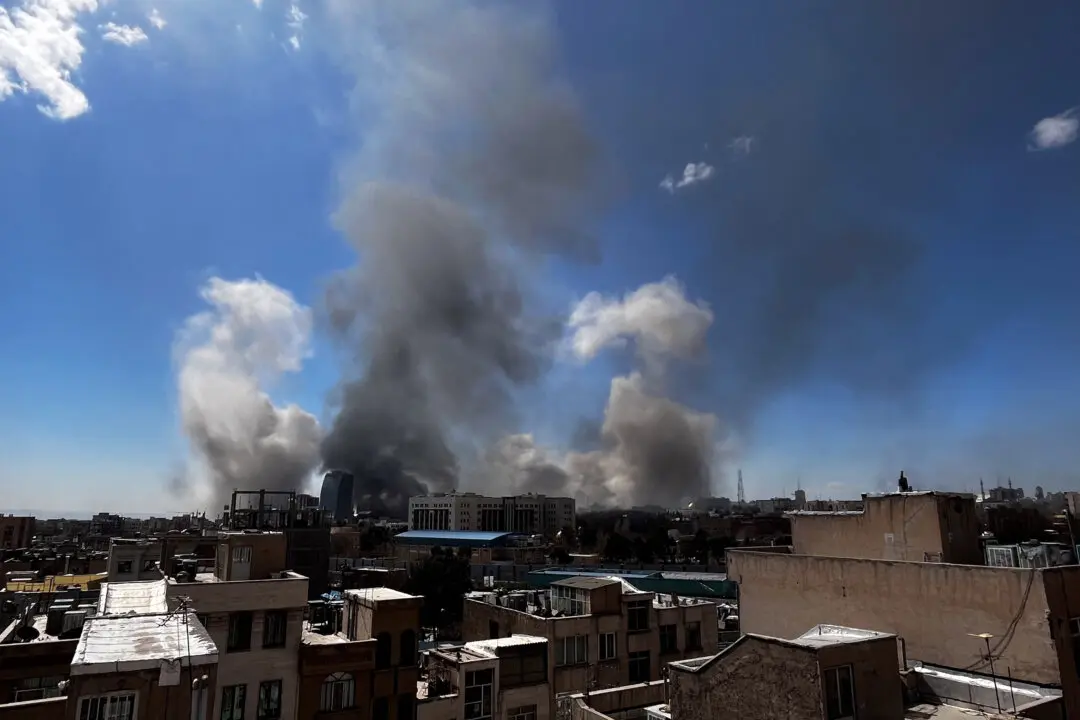On July 21, heavy rains caused severe flooding in Beijing. Comments on the Internet were caustic. The official death toll was denounced as a lie. The flooding was blamed on poor infrastructure, which was blamed on pervasive corruption.
Within two hours after officials opened an account for donations to help flood victims, it received 70,000 replies—which were overwhelmingly negative. A typical response was “donate your sister”—a curse. Netizens complained that any donations would be stolen by officials.
The Chinese Communist Party (CCP) relies on propaganda to rule, but the Chinese people no longer trust what the officials say. Without the ability to beguile the people into doing what it wants, the CCP is left only with the crude weapon of force.
Deng Yujiao
On May 10, 2009, Deng Yujiao, a waitress in a bar and spa in Badong County in Hubei Province, was allegedly attacked by three CCP officials who tried to rape her. She grabbed a fruit knife and stabbed one to death.
The public rallied instantly to her defense. Lawyers from Beijing came to defend her. Netizens organized themselves to support her. Journalists, including an editor for the state-mouthpiece Xinhua, stood up for her. The public began wearing T-shirts with her likeness to show their support for her.
Other cases show that this reaction is not unusual. On July 1, 2008, the anniversary of the founding of the Communist Party, a laborer named Yang Jia burst into a Shanghai police station and killed six policemen in apparent revenge for mistreatment he had received. A beating by Shanghai police in 2007 is said to have left Yang sterile.
The Chinese public treated Yang like a national hero, with 1,000 standing outside the courthouse to support him.
Mass Incidents
According to the 2005 edition of the Blue Book of China’s Society published by the Chinese Academy of Social Sciences, which is the regime’s top think tank, from 1993 to 2003, the number of large-scale incidents of social unrest grew from 10,000 to 60,000 a year, and the number of people involved grew from 700,000 to 3 million.
A Tsinghua University professor with close ties to top officials estimates that in 2011 the number of such incidents was 180,000, or almost 500 incidents each day.
Perhaps most of these mass incidents occur because of long-standing grievances. Farmers and homeowners’ land is sold out from under them by officials, or a community is subjected to noxious, uncontrolled pollution by industry. But some of the incidents flare up as spontaneous revolts responding to a random event of injustice.
Wukan
After petitioning officials 14 times over two years’ time, the villagers of Wukan in southern Guangdong Province had had enough. On Sept. 29, 2011, they threw out their local CCP officials and elected their own representatives, who governed them for three months before the CCP reasserted control.
The incident demonstrated that the Chinese people can govern themselves. On Dec. 27, 2011, villagers in neighboring Fujian Province protested and one of their banners was “Learn From Wukan.” In February 2012, two villages in Zhejiang Province, inspired by Wukan, threw out their officials.
WukanWikipedia: Wukan is a coastal fishing village in Guangdong, China. →





